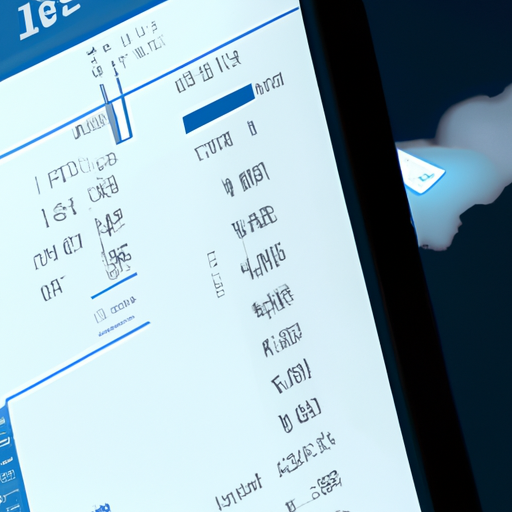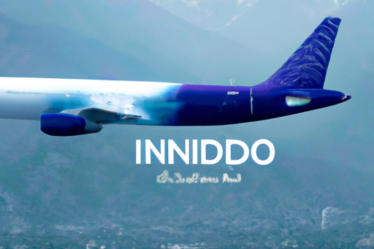
Benefits of Korean Air’s Shift to Electronic Air Waybills for Cargo Commences
Korean Air, one of the leading airlines in the world, has recently made a significant shift in its cargo operations by adopting electronic air waybills. This move is expected to bring numerous benefits to both the airline and its customers. Let’s take a closer look at some of the advantages of Korean Air’s shift to electronic air waybills for cargo.
First and foremost, the adoption of electronic air waybills will greatly enhance efficiency in the cargo handling process. With traditional paper-based air waybills, there is always a risk of documents getting lost or misplaced. This can lead to delays in cargo delivery and cause frustration for both the airline and its customers. However, with electronic air waybills, all the necessary information is stored digitally, eliminating the possibility of physical documents being lost. This streamlined process will result in faster and more reliable cargo transportation.
Another significant benefit of electronic air waybills is the reduction in paperwork. In the past, cargo shipments required a significant amount of paperwork, including multiple copies of air waybills, invoices, and other related documents. This not only consumed valuable time but also contributed to unnecessary waste. By going digital, Korean Air will be able to eliminate the need for excessive paperwork, making the cargo handling process more environmentally friendly and cost-effective.
Furthermore, electronic air waybills will enable real-time tracking and monitoring of cargo shipments. With traditional paper-based systems, it was often challenging to keep track of the exact location and status of each shipment. This lack of visibility could lead to misunderstandings and delays in communication between the airline and its customers. However, with electronic air waybills, both Korean Air and its customers will have access to up-to-date information about the whereabouts of their cargo. This enhanced visibility will not only improve communication but also allow for better planning and coordination of logistics.
In addition to improved efficiency and visibility, the shift to electronic air waybills will also enhance security in cargo operations. Paper documents can be easily tampered with or forged, posing a significant risk to the integrity of the cargo handling process. By digitizing the air waybill system, Korean Air can implement robust security measures to ensure the authenticity and integrity of the information. This will provide peace of mind to both the airline and its customers, knowing that their cargo is being handled with the utmost care and security.
Lastly, the adoption of electronic air waybills aligns with the global trend towards digitalization in the aviation industry. As technology continues to advance, airlines are increasingly embracing digital solutions to streamline their operations and enhance customer experience. Korean Air’s shift to electronic air waybills demonstrates its commitment to staying at the forefront of industry trends and providing its customers with the best possible service.
In conclusion, Korean Air’s decision to transition to electronic air waybills for cargo brings numerous benefits to both the airline and its customers. From improved efficiency and reduced paperwork to enhanced visibility and security, this shift will undoubtedly have a positive impact on the cargo handling process. By embracing digital solutions, Korean Air is setting a new standard in the industry and ensuring that its customers receive the highest level of service.
Streamlining Cargo Operations: Korean Air’s Transition to Electronic Air Waybills

Korean Air, one of the leading airlines in the world, has recently made a significant shift in its cargo operations by transitioning to electronic air waybills. This move is aimed at streamlining their processes and improving efficiency in the transportation of goods.
Traditionally, air waybills have been paper documents that accompany shipments, providing essential information about the cargo, its origin, destination, and other relevant details. However, with advancements in technology, many airlines, including Korean Air, have recognized the benefits of transitioning to electronic air waybills.
The shift to electronic air waybills brings numerous advantages for both Korean Air and its customers. Firstly, it eliminates the need for physical paperwork, reducing the risk of documents being lost or damaged during transit. This not only saves time but also ensures that the cargo is accurately tracked and accounted for throughout its journey.
Furthermore, electronic air waybills enable real-time updates and instant access to information. This means that both Korean Air and its customers can easily track the progress of their shipments, ensuring transparency and peace of mind. Additionally, electronic air waybills allow for faster processing at customs, as the necessary documentation can be electronically transmitted, reducing delays and potential errors.
Another significant benefit of electronic air waybills is the environmental impact. By eliminating the need for paper documents, Korean Air is contributing to the reduction of paper waste and promoting sustainability. This aligns with the airline’s commitment to corporate social responsibility and its efforts to minimize its carbon footprint.
To facilitate this transition, Korean Air has invested in state-of-the-art technology and implemented robust systems to ensure the smooth integration of electronic air waybills into their cargo operations. They have also provided training and support to their staff and customers to ensure a seamless transition and maximize the benefits of this new system.
Customers of Korean Air can now enjoy the convenience of electronic air waybills by simply providing the necessary information electronically. This eliminates the need for physical paperwork and simplifies the shipping process. Additionally, customers can easily access and retrieve their air waybill information online, making it more convenient and efficient.
Korean Air’s shift to electronic air waybills is part of a broader industry trend towards digitization and automation. As technology continues to advance, airlines are embracing digital solutions to enhance their operations and improve customer experience. By adopting electronic air waybills, Korean Air is positioning itself as a leader in the industry, setting new standards for efficiency and customer service.
In conclusion, Korean Air’s transition to electronic air waybills marks a significant milestone in their cargo operations. This move not only streamlines their processes but also improves efficiency, transparency, and sustainability. By embracing digital solutions, Korean Air is setting a new standard for the industry and ensuring that their customers receive the best possible service. With this shift, Korean Air is well-positioned to meet the evolving needs of the cargo industry and continue to excel in the global market.
Enhancing Efficiency and Sustainability: Korean Air’s Adoption of Electronic Air Waybills for Cargo
Korean Air, one of the leading airlines in the world, has recently made a significant shift in its cargo operations. The airline has decided to adopt electronic air waybills for its cargo, a move that is expected to enhance efficiency and sustainability in its operations.
Traditionally, air waybills have been paper documents that accompany cargo shipments. They contain important information about the shipment, such as the origin and destination, the contents of the package, and the parties involved in the transaction. However, the use of paper air waybills has its limitations. They can easily get lost or damaged, leading to delays and additional costs for the airline and its customers.
By transitioning to electronic air waybills, Korean Air aims to overcome these challenges and streamline its cargo operations. Electronic air waybills are digital versions of the traditional paper documents. They can be created, transmitted, and stored electronically, eliminating the need for physical paperwork. This not only reduces the risk of loss or damage but also saves time and resources.
The adoption of electronic air waybills is part of Korean Air’s broader efforts to enhance efficiency and sustainability in its operations. By going digital, the airline can automate various processes, such as data entry and document verification, which were previously done manually. This not only reduces the chances of errors but also speeds up the overall process, allowing for faster and more reliable cargo shipments.
Furthermore, electronic air waybills contribute to the airline’s sustainability goals. By eliminating the need for paper documents, Korean Air reduces its paper consumption and, consequently, its environmental footprint. This aligns with the growing global trend towards sustainability and responsible business practices.
The transition to electronic air waybills also brings benefits to Korean Air’s customers. With digital documents, customers can easily access and track their shipments online, providing them with real-time information about the status and location of their cargo. This enhances transparency and improves customer satisfaction, as they can plan and manage their logistics more effectively.
To ensure a smooth transition, Korean Air has invested in the necessary technology and infrastructure. The airline has implemented a robust electronic air waybill system that integrates seamlessly with its existing cargo management systems. This allows for efficient data exchange and collaboration between different stakeholders, such as shippers, freight forwarders, and customs authorities.
In addition, Korean Air has provided training and support to its employees and partners to ensure a successful adoption of electronic air waybills. This includes educating them about the benefits of the new system and providing guidance on how to use it effectively. By involving all stakeholders in the transition process, Korean Air aims to maximize the benefits of electronic air waybills and ensure a smooth and efficient operation.
In conclusion, Korean Air’s adoption of electronic air waybills for its cargo operations marks a significant step towards enhancing efficiency and sustainability. By going digital, the airline can streamline its processes, reduce paperwork, and provide better services to its customers. This move not only aligns with global trends towards sustainability but also positions Korean Air as a leader in the industry. With its commitment to innovation and customer satisfaction, Korean Air is set to revolutionize the way cargo is handled in the aviation sector.


